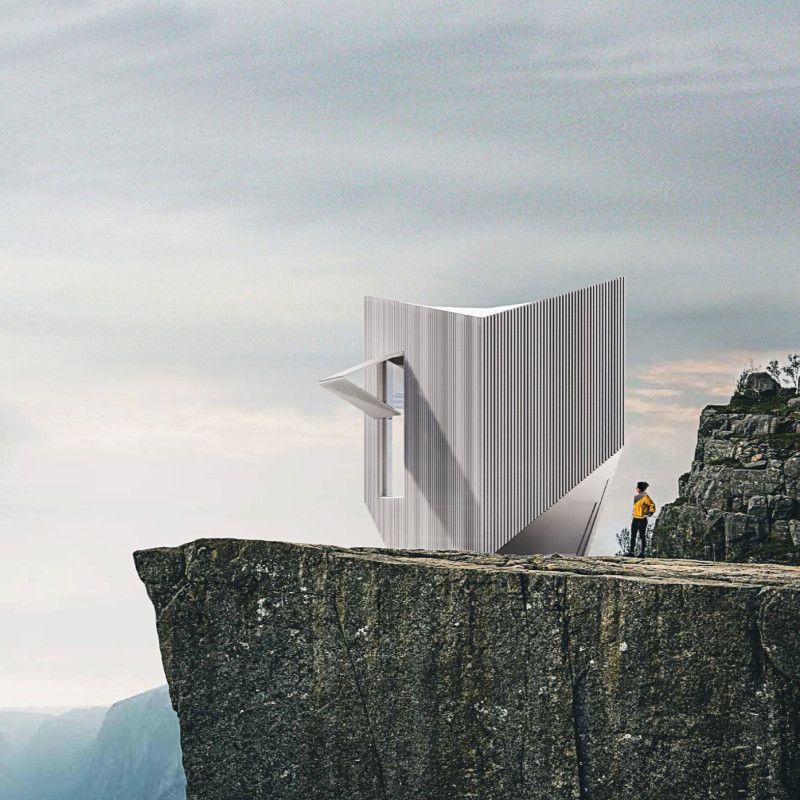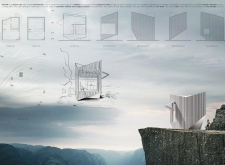5 key facts about this project
At its core, the project represents a commitment to off-grid living, emphasizing a minimal ecological footprint while maximizing the user's interaction with nature. The design focuses on adaptability, enabling the space to transform according to the needs and activities of its inhabitants. By balancing contemporary architectural forms with the essential requirements of comfort and practicality, MoveMe encapsulates a modern sense of living that is both efficient and engaging.
The architectural design employs various materials that are not only environmentally conscious but also significant to the overall experience of the cabin. Wood plays a prominent role in the structure, providing warmth and a tactile connection to the outdoors. Complementing the wooden elements, the use of aluminum for cladding introduces a clean, modern aesthetic while ensuring durability and longevity. Photovoltaic solar panels are integrated seamlessly into the design, showcasing the project’s commitment to sustainability through energy independence. Various other features, such as a rainwater tank and an air heat pump, further enhance the cabin's self-sufficiency by promoting responsible resource management.
Key aspects of MoveMe's layout include a dual-level configuration that encourages a fluid transition between different activities throughout the day. The lower level is tailored for day-to-day functions, while the upper level invites relaxation and evening enjoyment. This intentional separation of uses not only supports various functions but also enhances the occupants' connection to the ever-changing landscape. Expansive windows strategically placed throughout the cabin invite ample natural light and frame picturesque views, reinforcing the importance of the surroundings in shaping the interior experience.
The site context is also a crucial element in the project's design. Positioned atop a cliff, the cabin benefits from sweeping vistas, allowing the inhabitants to immerse themselves in the beauty of the landscape while maintaining a level of privacy. This thoughtful placement reflects an understanding of the natural topography and aims to reduce disruption to the ecological balance of the area, showcasing a responsible approach to site architecture.
What distinguishes MoveMe is not only its commitment to sustainability but also the unique ways it integrates technology into the design. The incorporation of modern features ensures that the cabin remains functional and comfortable while encouraging occupants to engage with their environment actively. The architectural decisions, from material selection to spatial organization, illustrate a comprehensive approach that considers the long-term implications of living in harmony with nature.
The MoveMe cabin therefore stands as an example of how architecture can address contemporary living demands while respecting the environment. Those interested in the nuances of this project can explore its architectural plans, sections, and designs to gain deeper insights into the innovative ideas that underpin this cabin. By analyzing the various components and design strategies employed, one can appreciate the skillful blending of form, function, and sustainability that characterizes MoveMe.























